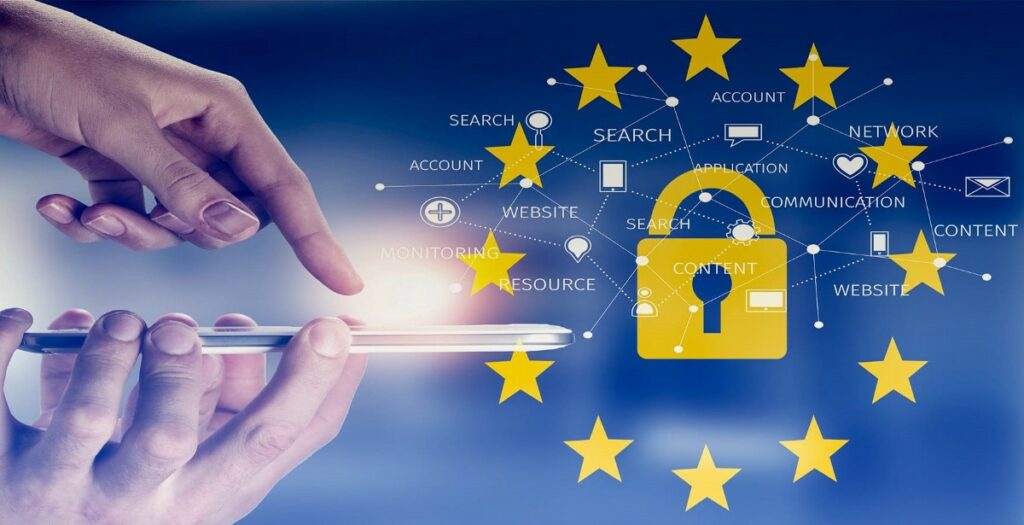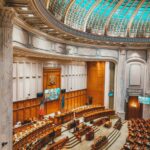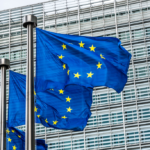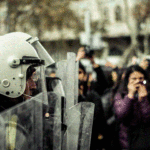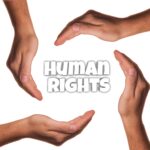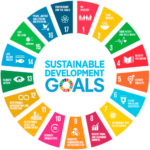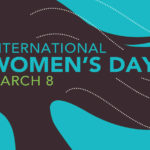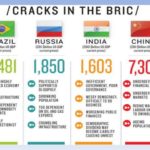The digitalization of our lives has a bearing on the protection and respect of our Human Rights. Illustrative concerns include the rise of digital identities, data protection and privacy issues, online violence and harassment, cybersecurity, the use of surveillance technologies and commercial use of data. On 26 January 2022, the European Commission issued a Declaration on Digital Rights and Principles. This is doubtless a reference framework for people… and a key guide for all businesses and policy-makers. Here’s why.
Digital Rights is Critical for Businesses and Policy Makers Alike
The digital transformation affects every aspect of people’s lives. It offers significant opportunities for a better quality of life, innovation, economic growth and sustainability. It likewise presents new challenges for the fabric, security and stability of our societies and economies.
Ksapa leads a variety of projects engaging businesses to better understand their role in enforcing and promoting Human Rights. Ksapa enjoys a unique position on the market, in that the platform also designs and implements programs to deliver concrete risk mitigation at scale. To that end, we use digital applications. While we engage with top management, we focus attention on most vulnerable segments. This puts us in a prime position to speak to a generallly poor understanding of what’s at stake when it comes to how digitized activities impact Human Rights.
Key Statistics and Best Practices from the Field
Here are a few numbers provided by the EU Commission:
- 88% of businesses and business users encountered unfair trading conditions on large platforms
- 72% of users want to know how their data is processed when they use social media
- 50% of Internet users in 2019 reported that security concerns limit their online activities
- 80% of Europeans would like to make digital devices easier to repair compulsory for manufacturers
The Digital Rights landscape is very broad, which no new to us at all. This EU initiative is building upon a very large number of initiatives, including the 20+ active civil society movements. These notably include, EDRi which is committed to raising the awareness of policy-makers and businesses on information democracy, privacy and data protection, open Internet and inclusive technologies.
For the past 30+ years, tech initiatives have also laid interesting groundwork. They include Linux, free softwares (e.g.: the NASA LaRC), free license principles such as Creative Commons (applied across Ksapa’s Briefing Papers) or the GreenNet event.
This Declaration on Digital Rights comes at a time when policy-makers are increasingly interested in data sovereignty. Meanwhile, businesses are increasingly under pressure to provide transparency on the way they collect, store and use data.
Key Principles of the EU Declaration on Digital Rights
Democratic Oversight of our Digital Environments
These new principles call for democratic oversight of the digital society and economy. This “in full respect of the rule of law principles, effective justice and law enforcement”. Over the past 30 years, privately-held digital companies have understood (and acted upon) the huge power and influence they can exert over society. In that regard, team members have advised most key global technology companies across the US, Europe and Pacific Asia. Having explored the issue from the inside, we could agreee more on the importance of democratic oversight.
This Declaration additionally outlines the most relevant rights in the context of the digital transformation. On the one hand, the Declaration may guide policy-makers as they explore the implications of the ongoing digital transformation, particularly as they relate to solidarity and inclusion, citizen participation in the digital public space, or consumer’s freedom of choice, safety, security and empowerment. All this within the broader scope of our societies’ overall sustainability. On the other, the Declaration can also serve as a reference point for businesses as they set out to develop and implement new technologies.
Solidarity and Inclusion : Technology for Everyone
At the forefront of the Declaration in the notion everyone should have access to technology. The underpinning goal is to unite, not divide people. Not only that, we at Ksapa encourage our clients and partners to explore Human Rights with a particular emphasis on vulnerable populations.
Technology must work for the benefit of everyone. It follows inclusiveness requires particular attention in the design, promotion and selling of a digital service. Language matters. Digital literacy matters. Readibility matters. Gender matters… the list goes on.
The Declaration outlines a vision where privacy by design, for instance, is a given – for everyone. When it comes to accessing and using services, people with little awareness of their own data protection rights cannot be expected to scroll down and accept endless privacy policies.
Access to Affordable and High-Speed Digital as a Basic Human Right
Looking beyond water, energy and other “basic” services, the Declaration reiterates the critical importance of considering Internet as a Human Right. Once and for all.
The Declaration openly encourages policy-makers and businesses to design, promote and set up digital infrastructures and solutions in such a way as to ensure everyone, everywhere (at least in the EU) may access affordable high-speed digital services.
Empowerment and Promoting Free Digital Solutions
Empowerment is another key focus on the Declaration. Everyone indeed has the right to education, training and lifelong learning. Everyone should be able to tap into both basic and advanced digital skills. We at Ksapa share this belief in using digital tools in education and vocational training.
Among many other fascinating implications, the Declaration delves into private licenses and intellectual property. Should everyone be able to acquire digital skills, is follows everyone be in a position to access training based on open-sourced solutions. This is not clearly provided for in the current Declaration. We however contend it would be the next logical step in applying its Principles.
Empowering Informed Choices
There has been extensive debate to date over data privacy, freedom of expression, civil surveillance and the role of social media in manipulating democracy. The Declaration moves away from naming and shaming a few culprits. More interestingly, it explores the necessary principles to ensure the broadest possible participation in the digital public space. These can be summarized as follows:
1. Plural accesses and contents
The Declaration for instance states “Everyone should have access to a trustworthy, diverse and multilingual online environment”. Access to diverse content very much contributes to a pluralistic public debate. Everyone should therefore be in a position to actively participate in democracy.
Social media are an obvious concern. They are nevertheless expected to support free democratic debate, provided we collectively mitigate the risks stemming from the functioning and use of their services. That notably involves targeting disinformation campaigns and more intently protecting our freedom of expression.
2. Transparency and trust in data management
Everyone has the right to freedom of expression, both on and offline. They should not fear censorship or intimidation. Everyone should in fact have the means to know who owns or controls the media services they are using.
3. Privacy and individual control over data
Everyone has the right to the protection of their personal data online. That right includes controlling how said data is used and with whom it is shared. Everyone has the right to the confidentiality of their communications and the information on their electronic devices. No one should be subjected to unlawful online surveillance or interception measures.
Everyone should be able to determine their digital legacy. Among other things, that means deciding just what happens to publicly-available information that concerns them. Including after their death.
4. Artifical intelligence and informed choices
Everyone should be empowered to benefit from the advantages of artificial intelligence. This involves making their own, informed choices in the digital environment. It also implies being protected against any risk or harm to their health, safety and fundamental rights.
5. Protecting and Empowering Children and Young People
Finally, children and young people should be empowered to make safe and informed choices. Not only that but also express their creativity in the online environment. Age-appropriate materials should as a result improve children’s experiences, well-being and participation in the digital environment. Children have the right to be protected from all crimes committed via or facilitated by digital technologies.
Conclusion: Embedding Environmental and Human Rights Concerns in the Digital Landscape
The internet allows us to send messages, share pictures, download music and stream videos at a touch of a button. These online habits have a major impact on the environment. The key issue lies in avoiding significant harm to the environment and to promoting a circular economy. As such, digital products and services should be designed, produced, used, disposed of and recycled in a way that minimises their negative environmental and social impact. This also means everyone should have access to accurate, easy-to-understand information on the environmental impact and energy consumption of their digital products and services. Only then can they make responsible choices.
Most discussions around digital governance tend to be overly technical or one-sided. This Declaration is therefore a powerful document, simply because it provides a systemic perspective on the multiple dimensions at stake. More than that, it provides a concise overview of the necessary measures to ensure the digitalization of our societies actually supports the development and Human Rights of all.
Conversely, it seriously challenges the business model of a large number of companies. As a result, it sends out a cristal clear signal in favor of innovating and investing into valuable segments. The kind that is a lot less dependant on intellectual property protection and the commercial use of data… for instance.
Président et Cofondateur. Auteur de différents ouvrages sur les questions de RSE et développement durable. Expert international reconnu, Farid Baddache travaille à l’intégration des questions de droits de l’Homme et de climat comme leviers de résilience et de compétitivité des entreprises. Restez connectés avec Farid Baddache sur Twitter @Fbaddache.

